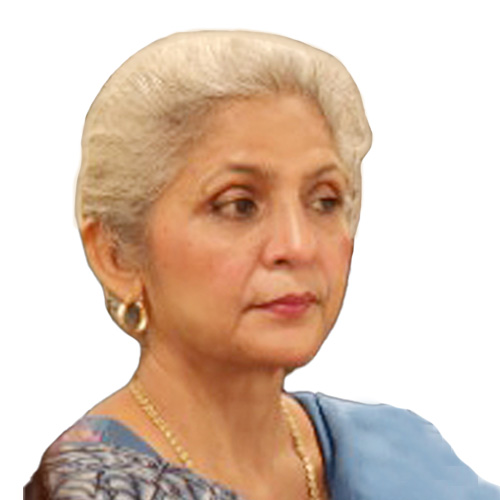- Web Desk Karachi
- Jun 30, 2025

Nawaz’s turnaround and Zardari’s rise to presidency
Sometimes it’s hard to believe and astonishing how the world can be so small? Look, for instance, the recently appointed Finance Minister Muhammad Aurangzeb is the son of Chaudhry Muhammad Farooq, who served as the Attorney General for Pakistan during Nawaz Sharif’s second term in government back in 1997. It was during this period that a staggering $60 million money laundering scandal, implicating Zardari, came to light, alongside the infamous saga of Benazir Bhutto’s necklace.
Upon learning of these revelations, the then Nawaz Sharif government wasted no time in springing into action. It swiftly penned a letter to the Swiss government, asserting that the funds stashed by Zardari and Benazir Bhutto in Swiss accounts were ill-gotten gains, siphoned from the pockets of the Pakistani people. Consequently, the rightful owner of this wealth was the Pakistani government, not Zardari. The Swiss authorities had already initiated legal proceedings against Zardari and Benazir Bhutto, prompting the Pakistani government to intervene as a stakeholder. It was during this tumultuous time that the then Attorney General Chaudhry Farooq penned that notorious missive, declaring the funds to be the spoils of corruption that had ravaged the Pakistani economy.
Then the saga unfolded further. In subsequent speeches by Shehbaz Sharif, he would relentless call to reclaim the embezzled funds, often accompanied by vehement condemnations aimed at Zardari. Fast forward to today, and Zardari holds the highest office in Pakistan, while Chaudhry Farooq’s son serves as the finance minister.
Such twists of fate seem uniquely Pakistani. I vividly recall examining the comprehensive trove of evidence amassed by the FIA against Asif Zardari and the Omni Group. It was during that period when the details of luxurious lifestyles juxtaposed with dubious financial dealings came to light. Zardari and his cohorts were ensnared in the ensuing scandal, only for him to rise to the presidency today.
Many dismiss these events as mere political theatrics, concocted to besmirch the reputations of politicians. They argue that if the allegations were true, the courts would have convicted them instead of clearing their names, suggesting a pervasive skepticism but not the truth.
However, let’s dissect this argument. Firstly, while there may have been accusations against Zardari, the Swiss government had initiated legal proceedings against him. Secondly, it’s worth noting that it was former prime minister Nawaz Sharif’s Attorney General, Chaudhry Farooq, who corresponded with the Swiss authorities. Curiously, the same threats to expose Zardari’s misdeeds were made by Shehbaz Sharif, who now occupies the prime ministerial seat. Yet, the blame is often shifted to the media for its portrayal of Zardari.
What’s intriguing is that those very individuals who once sought to recover the 60 million dollars from Zardari are now not only in positions of power but have also elevated Zardari to the presidency. Consider Nawaz Sharif, who, as prime minister, penned a letter to the Swiss government against Zardari, yet ended up casting his vote for Asif Zardari in the presidential election. Similarly, Shehbaz Sharif, who once vowed to tear Zardari’s stomach apart, ultimately supported his candidacy, even persuading his own party members and children (Maryam Nawaz and Hamza Shahbaz) to do the same.
One can’t help but wonder about the reaction of former chief justice Iftikhar Chaudhry, who ousted Yousaf Raza Gilani from the prime ministerial post for his reluctance to write a letter to the Swiss authorities regarding the 60 million dollars. Chaudhry sought the resumption of the investigation, which had stalled during General Musharraf’s tenure. Today, with Zardari back in the presidential seat, Chaudhry can be seen leisurely strolling through the Islamabad Club Polo Ground every evening.
Likewise, one wonders about the response of former army chief Gen Raheel Sharif, who was the target of Zardari’s fiery speeches. In one such speech, Zardari addressing General Raheel, said: “You come and go, but we politicians remain.” Though this rhetorical speech, Zardari eventually left the country for Dubai, only returning after General Raheel’s retirement.
After Zardar’s speech, former prime minister Nawaz Sharif was rattled, who had arranged a breakfast meeting with him the following day, only to cancel it to avoid displeasing General Raheel. It’s ironic that Nawaz Sharif later championed slogans of “respect the vote” and launched the civil supremacy movement, having previously scrapped the breakfast with Zardari to appease General Raheel.
I recall a significant moment during discussions surrounding the appointment of then-army chief General Bajwa, when my friend Major Aamir told me that Zardari had been consulted in this regard. When I shared this revelation on my TV show, I received a message of gratitude from an unknown sender, signed “AZ.”
Initially puzzled by the sender’s identity and the significance of “AZ” from Dubai, I responded, expressing regret for not being able to connect the dots and seeking clarification on the meaning of “AZ.” The response came swiftly: Asif Zardari.
In that moment, it dawned on me that by breaking this news, I inadvertently facilitated his potential return to Pakistan after the appointment of the new chief. Surely, the then army chief was made aware that Zardari’s endorsement played a part in his selection. Despite some reservations raised by PPP’s Khurshid Shah regarding General Bajwa’s nomination, his elevation seemed assured. General Bajwa, however, harboured concerns that his nomination might be jeopardized due to such reservations. Hence, in such circumstances, my news favoured Zardari’s interests. It not only brought good news for General Bajwa but also presented an opportunity for Zardari’s resurgence.
Today, as we reflect, many would find it astounding that Zardari, against all odds, has reclaimed the presidency.
I vividly recall an encounter with an Adiala jail official in a local market Islamabad. At that time, Zardari was incarcerated in Adiala jail. Upon inquiry about Zardari, the jail official describing his deteriorating health expressed reservations about his custody in Punjab. He mentioned having written to the government, urging the immediate transfer of Zardari to Karachi. Should any mishap occur, he should not be in a Punjab jail. This was in 2019.
Subsequently, Zardari was released after he extended support for General Bajwa’s extention in office, and today, he has assumed the presidency once again. At that time, his ‘declining’ health was such that the jail authorities were merely counting the days.
In 2015, during our visit to Karachi for municipal election coverage, I vividly remember a meeting arranged by the channel owner at the residence of then-DG Rangers, Bilal Akbar. Amidst discussions, Bilal Akbar claimed having medical information from London about Altaf Hussain indicating that his ailment was irreversible. He claimed that Altaf could only sustain the fight until March, no further.
Nine years have passed since then but Altaf Hussain has since become sharper and healthier.
I also find it intriguing to imagine the reaction of the Adiala jail authorities, who were apprehensive about Zardari’s health in 2019, fearing the possibility of another Sindhi leader ending up in Punjab. Today, witnessing a robust Zardari taking the presidential oath after five years, one can only wonder about their current state of mind.







